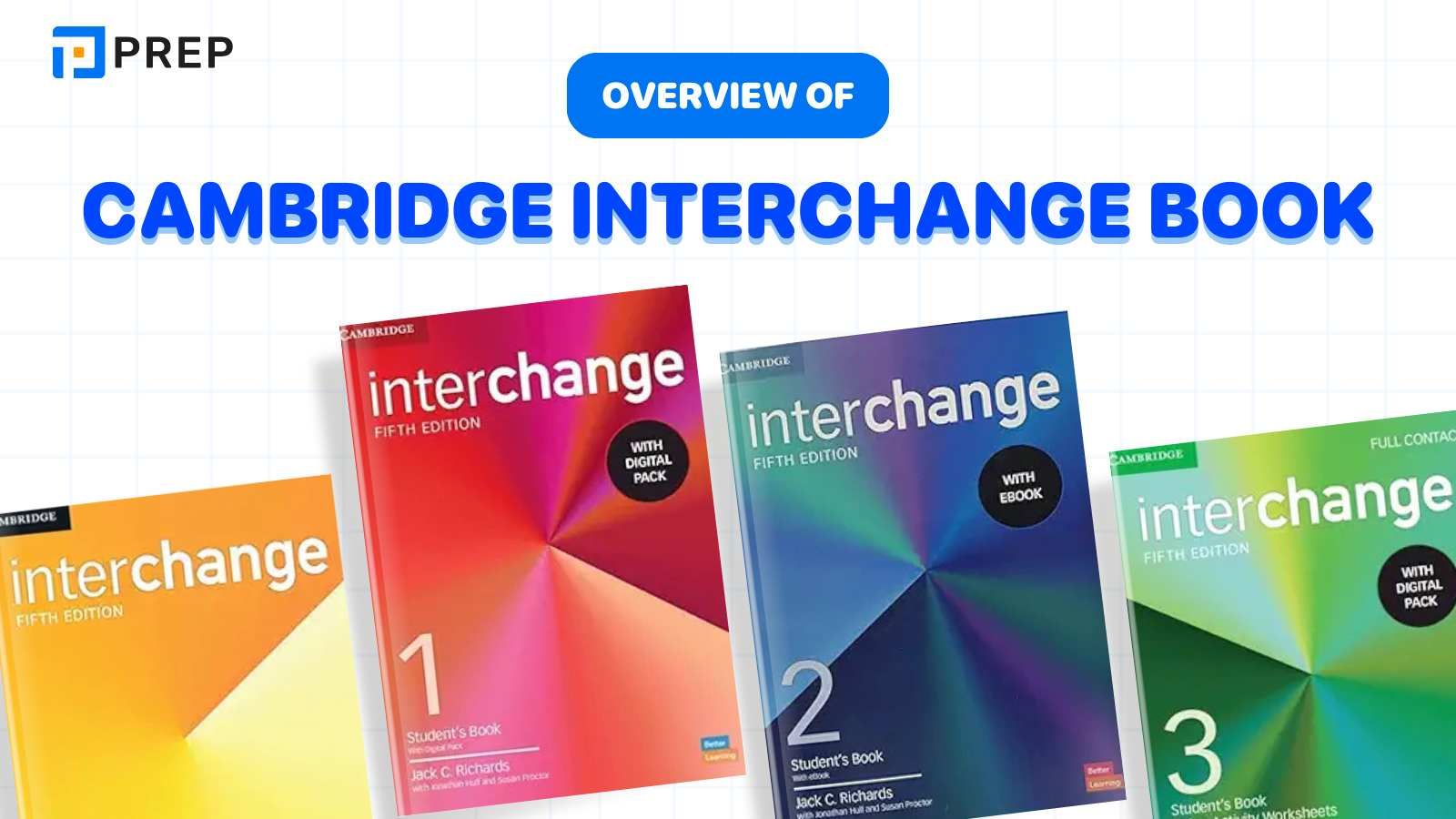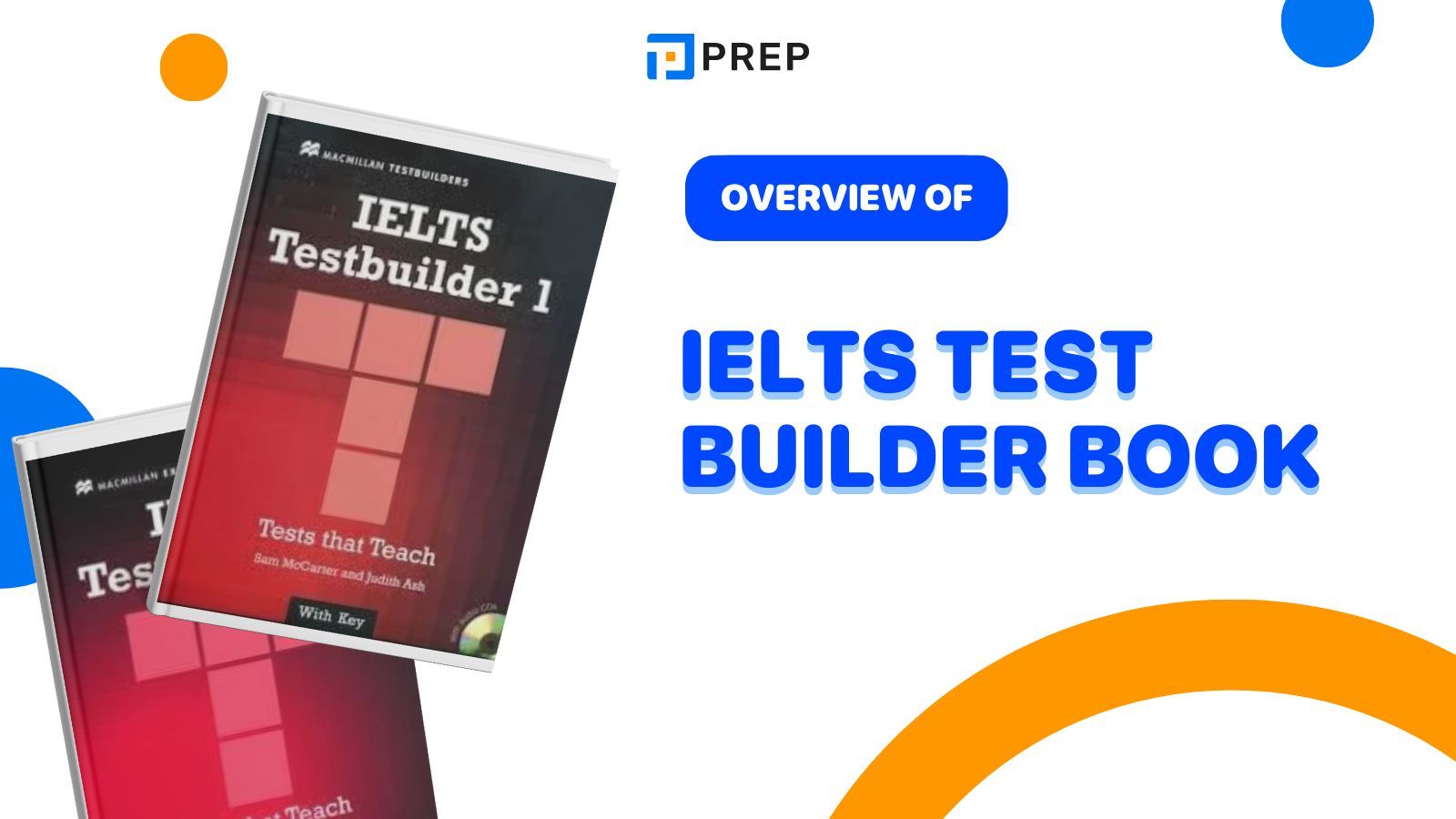Search blog
IELTS Speaking Test Format and 2 tips to help you achieve a high score
The IELTS test consists of 4 skills: Listening, Reading, Writing, and Speaking. You will take the Listening, Reading, and Writing sections in one session, consecutively. The Speaking section will be taken separately on the same day as the other 3 skills, or it may be scheduled for a different day depending on your test center. Since the IELTS Speaking part is taken separately, prepedu.com will provide the most detailed IELTS Speaking Test Format in this article. In addition, we will share some tips for when you participate in the speaking test. Let's carefully explore them to secure a high band score in your hands, Preppies!

I. Introduction to the format of IELTS tests
The IELTS test is divided into two different formats: IELTS Academic and IELTS General Training as follows:
- IELTS Academic: This format is used to assess candidates who are qualified and ready to pursue undergraduate or postgraduate programs. IELTS Academic is also a recognized qualification for language proficiency required for entry into university and postgraduate courses.
- IELTS General Training: This format is suitable for individuals who intend to go to English-speaking countries to complete high school programs or for those who wish to undertake vocational training or have immigration purposes.

II. IELTS Speaking Test Format
The IELTS Speaking test is designed to assess candidates' speaking ability, communication skills, and their ability to express ideas. The Speaking test takes place within a timeframe of 11-14 minutes. Each speaking session is recorded for purposes such as test remarking.
IELTS Speaking Test Format consists of three parts: Part 1, Part 2, and Part 3. Whether it's the IELTS Academic or IELTS General Training format, the Speaking test format remains the same. Refer to the following information to understand more about IELTS Speaking Test Format:
- IELTS Speaking Test Format - Part 1: This part will consist of general questions about the candidates themselves. The questions will be related to everyday life topics. Some common topics include home, transportation, family, work, hobbies, and education. The first part of the test will last for about 4 to 5 minutes.
- IELTS Speaking Test Format - Part 2: In this second part, the examiner will give the candidate a cue card with a specific topic. The candidate will be asked to speak about the given topic. In this Speaking part, you will have one minute to think about the ideas you will talk about and you can take notes on the provided paper. After one minute, you will have two minutes to present your response. Additionally, the examiner may ask you 1-2 follow-up questions before concluding the part.
- IELTS Speaking Test Format - Part 3: The topic for Part 3 is related to the topic given in Part 2. The examiner will ask you questions that further discuss the previous topic. In addition, you will have the opportunity to discuss and elaborate on the topic. The structure of this final part of the Speaking test lasts for 4-5 minutes.

One note for you when answering the speaking test is to avoid repeating the same information. Do not be repetitive as it can result in a lower score for the speaking section.
To familiarize yourself with IELTS Speaking Test Format, during your self-study for the IELTS Speaking test at home, you can refer to the "Official Collection of IELTS Speaking Test 2023" - the official tests from 2023.
III. IELTS Speaking Test Format - Part 1
In the IELTS Speaking Part 1 test, first, the examiner will introduce themselves, and then they will ask the candidate to introduce themselves and verify their identity through personal identification documents (ID card/ citizen card/ passport/ driver's license). Here are some example questions the examiner may use:
- Good morning, welcome to the IELTS Test conducted by IDP/ BC.
- My name is Simon and I’m your examiner for the Speaking test today.
- Can you please tell me your full name?
- What is your candidate number?
- Can you show me your identification, please?
After completing the identity verification part, the candidate will be asked common questions about familiar everyday topics such as family, work, education, hobbies, home, transportation, etc. The examiner will focus on assessing reflexes and natural responses to the listed topics.
What types of questions are in Part 1 of the test? Below is IELTS Speaking Test Format - Part 1 for your reference!
Question type | Description | Example |
| Description Question | The candidate is asked to describe someone or something. |
|
| Frequency Questions | The candidate is asked to answer about the frequency of different activities. |
|
| Preference Questions | The candidate is asked to choose what they prefer to answer. |
|
| Like and Dislike | The candidate is asked to respond about their level of preference for a certain object. |
|
| Popularity Questions | The candidate is asked to provide public information about one or more groups of people. |
|
| Questions Regarding Past Experience | The candidate is asked to answer about an event or experience that occurred in the past. |
|
| Questions Regarding Future Experience | The candidate is asked to respond about the future. |
|
| ‘Type of’ Questions | The candidate is asked to choose one of several categories of something. |
|
Note: In the IELTS Speaking Part 1 test, candidates will be asked a maximum of 4 questions. Therefore, allocate 20-30 seconds to answer each question, and the total time for this part of the test is 2-3 minutes.
IV. IELTS Speaking Test Format - Part 2
In the structure of IELTS Speaking Part 2, the candidate will be given a cue card. The requirement of this part is for the candidate to speak about a topic for 2 minutes and have 1 minute to think about the answer. Once the candidate has completed their speaking part, the examiner will ask 1-2 additional related questions.
Some notes to consider during the process of answering the IELTS Speaking Part 2 test to achieve a high Speaking band score:
- Candidates should speak continuously about the given topic on the cue card for 1-2 minutes.
- Candidates should answer all the additional questions asked by the examiner in their speaking part. These additional questions are directly related to the content of the Part 2 topic, helping the candidate stay on topic and keep the speech focused without digression.
- If there is time remaining, candidates can expand their answers by mentioning some objects or events related to the topic after addressing all the additional questions asked by the examiner.
V. IELTS Speaking Test Format - Part 3
The structure of IELTS Speaking Part 3 is designed as a two-way discussion between the candidate and the examiner. This part of the test allows the candidate to delve deeper into abstract and social issues. In the IELTS Speaking Part 3 test, the examiner will ask questions related to the topic of IELTS Speaking Part 2 but with a deeper nature.
6 types of questions that may appear in the structure of IELTS Speaking Part 3 are as follows:
Question type | Description | Example |
Opinion | The candidate is required to present their viewpoint of agreeing/disagreeing with a certain opinion. |
|
Evaluate | The candidate is required to evaluate the feasibility/importance/necessity of a certain object/activity. |
|
Future | The candidate is required to present their perspective on an event or issue that may occur in the future. |
|
Cause and Effect | The candidate is required to present the impact or influence of someone on a certain object. |
|
Compare and Contrast | The candidate is required to compare, and then describe the similarities/differences between 2 objects/aspects. |
|
Past | The candidate is required to compare the past or provide the changes over time. |
|
VI. Notes when taking the IELTS Speaking test

1. Psychological aspects
IELTS Speaking Test Format remains the same and does not change. The speaking test takes place within a relatively short period, while your learning and preparation process may be much longer. Therefore, you should remember that your test score does not reflect your overall abilities. Your proficiency may be higher than the score you receive.
Your test score depends on both subjective and objective factors. The objective factors include the examiner, the testing environment, etc., which you have little control over. However, the subjective factor comes from within yourself.
The subjective factor to be addressed here is the psychological aspect - something that you can easily grasp and control. During the actual test, you may experience emotions such as nervousness, anxiety, etc. These psychological issues can greatly impact your ability to respond to IELTS Speaking Test Format. Your ideas may become jumbled in your mind, making it difficult for you to articulate them.
Therefore, it is important to "stay relaxed" during the test. Imagine it as if you are simply having a conversation and sharing your personal opinions with friends. Present your test naturally and flexibly, as if you are conversing with a close acquaintance.
2. Impressions
Create a good impression on the examiner right from the first glance. When you meet the examiner, they will observe your outward appearance. Therefore, these factors play a crucial role before you start the test. When you make a good impression, those positive aspects will make your test easier.
Therefore, prepare yourself with an outfit that makes you feel the most confident. Wear a bright and radiant smile when called into the testing room and greet the examiner politely. Additionally, your sitting posture also contributes to the impression you make on the examiner.
Through these aspects, the examiner can easily perceive your level of confidence. Sit in a firm and confident posture, ensuring that your back is straight. Some people may consider these as simple details and not worth paying attention to. However, these small details help you gain a tremendous amount of confidence to start off on a favorable note.
This is IELTS Speaking Test Format that PREP wants to share with you. Please carefully refer to the format or IELTS Speaking Test Format. By doing so, you will not be confused when entering the actual test.
In addition, please also refer to the additional notes when taking the Speaking test that we recommend, as well as immediately refer to the IELTS preparation roadmap on PREP.

Comment
Search blog
Register for a learning roadmap consultation
Please leave your information, and Prep will contact you for consultation right away!



![[SAMPLE SPEAKING] IELTS Speaking Part 1: Advertisement](https://cms-static-assets.prepcdn.com/uploads/ielts_speaking_part_1_advertisement_0fed324a86.png)










